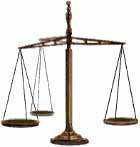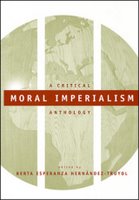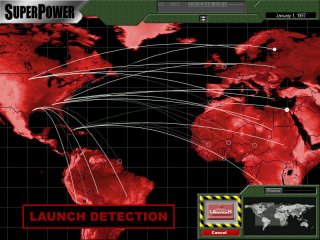Saturday, April 15, 2006
Alice Cooper: Send the Psychics to Find Bin Laden
 I am in Philadelphia this weekend for a weekend with family, and was fortunate enough to catch my first listen of the nationally syndicated classic rock radio show Alice Cooper Nights. Excellent stuff, no question about it. Rock legend Alice Cooper gives a real life account of the life of a musician rocking through the 60s, 70s and 80s. He tells amazing stories, interviews fellow rockers, and even comments on the world today. If you get a chance, give a listen!
I am in Philadelphia this weekend for a weekend with family, and was fortunate enough to catch my first listen of the nationally syndicated classic rock radio show Alice Cooper Nights. Excellent stuff, no question about it. Rock legend Alice Cooper gives a real life account of the life of a musician rocking through the 60s, 70s and 80s. He tells amazing stories, interviews fellow rockers, and even comments on the world today. If you get a chance, give a listen!
Well, I nearly drove off the road laughing when Cooper suggested tonight that all the psychics should be sent to the Middle East to find Bin Laden. Cooper posits that if they truly are psychics, finding him will be no problem, and even offered to kick up reward money for the psychic who finds him. If, as Cooper believes, they're all frauds, well, I guess you've got a bunch of psychics stuck in Afghanistan who can't come home until they find him, and one less hassle for us.
Not a bad plan, Mr. Cooper, not a bad plan at all. Of course, such suggestion will lose your title Mr. Nice Guy! Oh, I guess you already claimed you lost the roll. I'm sure he won't be crying over those psychics...it would smear the makeup!
technorati tags: Alice Cooper, Bin Laden, Afghanistan, Middle East, Psychic
Read more-->
Posted by Scottage at 4:21 AM /
| |

Friday, April 14, 2006
Multiple Superpowers: The Growing Dilemma
I don’t know if it’s happenstance or if people are actually reading my posts on the superpower issues the world faces today, but since I posted Wednesday on the nature of a world with no superpowers, I have received more votes for multiple superpowers (although I still have some for no superpowers).
Well guess what, everybody; you may fish your wish on this one. Because I believe we will be living in a multiple superpower world before we hit 2008.
The Advantages
There are many advantages to a world with multiple superpowers. First and foremost, all the superpowers serve and checks and balances for the others, as well as acting as watchdogs for the smaller countries in the world. In many ways, this world is extremely secure as a result of the multiple superpowers, as all countries have to avoid upsetting any two of the superpowers.
Again, with multiple superpowers it is reasonable to expect that people would be able to move between countries fairly easily, as much of the tension that arises between two superpowers would be avoided. Advanced communication would allow people to be aware of opportunities, and I suspect such a world would see a great deal of moving around by people and communities as they find their comfort zones.
Further, the rivalry between superpowers could, and should, lead to advancements in technologies, medicines, the arts, literature, and exploration, similar to what we will see in the two superpower scenario. As superpowers and their allies attempt to attract citizens, money will be invested in these activities, and countries will try to outshine their neighbors.
The Potential DownsideWhile I suspect the multiple superpower scenario will be more stable than other options, it has be potential to fall apart suddenly, as lust for power can be accommodated if any superpower can win the allegiance of any other superpower, or enough of the non-superpower countries.
Further, the natural balance that was experienced in the other scenarios would not be realized, as there would most probably be consistent jockeying for the support and allegiance of the non-superpower countries. I would expect to see minor wars regularly and occasional larger conflicts over more influential countries.
A Real Life ExampleLet’s say, for a second, that my vision of the future is realized, and that Russian and China ally to be a superpower, while the majority of the Middle East allies behind Iran to become the second superpower, with the US as the third.
Because of the balance of technology, numbers in the troops, and established information channels, the US is still probably the most powerful. The troops are loyal for the most part and believe in the cause of democracy, and the country has the ability to cause mass destruction in a worst-case scenario.
Iran would have more ground troops, but would be limited in their technology and would not have the ability to create mass destruction. Russia and China would be close in technology to the US, but would not have the number of ground troops, and loyalty in each nation would be a question mark.
No one superpower in this scenario would be able to inflict its will on the other two, and what’s more, attempting to do so could cause the other two to gang up on you. Great results!
One would expect, again, that the allegiance of some countries would be crucial, and would be fought for. Countries such as Saudi Arabia, Denmark, and Afghanistan, amongst many others, have significant Muslim populations, which may push for alliances with Iran. Where would Taiwan, North Korea, Singapore, and Hong Kong show their allegiance? To expect these questions to be answered without bloodshed is naïve.
Furthermore, as time goes on, and superpowers solidify their position, logic would indicate that two superpowers could try to extend their influence further.
Let’s say that Iran can somehow convince China and Russia that the US is still a problem, still pushing democracy, and must be eliminated. Now you combine the weaponry of Russia and China with the troops in Iran and the Middle East, and you have a certifiable nightmare.
The Conclusions
I’m attracted by the multiple superpower scenario, but I see the danger that is inherent in such a system. I would favor this over any of the world orders we have discussed, but I worry that the stability we would find would have a finite life span.
In the next post, regarding the two superpower world, we will determine if there could be better results from a two superpower world, or if the multiple superpower world will bring us the stability we strive for.
technorati tags: Superpower, Checks, Balances, Iran, Russia, China, United States, Middle East,
Read more-->
Posted by Scottage at 6:09 PM /
| |

Thursday, April 13, 2006
A World without a Superpower – Paradise or Anarchy?

After a day of voting (in my poll, that is), a clear preference has arisen for a world with no superpower. Certainly there is a great deal of appeal in such a world. However, I’m not convinced that a world without a watchdog is conducive to maintaining a secure, stable world.
The Utopian VisionThe first inclination is that a world without superpowers should work well. In theory, if there are no superpowers, a natural balance should occur, allowing variant cultures to exist without pushing their views on each other. There would be a tendency to be more tolerant of other cultures within any given society, as countries would try to entice new citizens to immigrate to their country. Further, without the imperialism addressed in earlier posts, the tensions that exist today between countries would not be present, and thus the greater conflicts that threaten us in the here and now would cease to exist.
I think that those would be true positive ramifications of a society without superpowers. I think that a natural balance would occur between cultures, and that countries would settle into a comfort zone, with trading partners, allies, and countries which are tolerated. Without a superpower, opportunities would open up, and people would look for countries with those opportunities, in some cases. And today’s conflicts certainly would not be a factor if there were no superpower inflicting its views on the world.
The Reality?But would that last? For the better part of the last 1000 years, at least, Europe has acted like a world onto itself, simply colonizing any areas that they encountered outside of the European continent. With so many powerful countries in Europe at the time, including England, France, The Netherlands, Spain, Portugal, Austria-Hungary, eventually Germany, and Russia, no country ever rose to the status of superpower. But did that prevent the conflicts, the wars, the strife, the or the imperialism? Not at all!
Europe was plagued with everything from petty squabbles to all-out wars for the entire period I’m referring to. While arguably the continent moved into periods of natural balance, the balance would inevitably be destroyed by the greed of one nation or leader. The European countries did become more tolerant of other cultures, and often enticed new immigrants with advanced opportunities. But consistently, as the power of any group within a society would increase, the country housing the community would crack down upon it, solidifying the government’s power base.
Similar behavior has been seen in the Middle East over the centuries. The various regimes in the region have been feuding there over any variety of issues for as long as time remembers, and the struggles for power have become almost common place. In fact, this state of affairs lends itself to an odd trait in the region: mortal enemies can become close allies at the drop of a hat. Regimes have flopped sides whenever it is politically expedient, as countries in the region, and their leaders, continually reposition themselves to maximize their power base. And in the end, the region has always fallen into its own natural balance.

It should be noted that the feuding in the Middle East appeared far more acceptable to Europeans I've met along my journeys then it ever did to Americans I speak to. Perhaps because the United States has not seen the level of conflict on its own soil, Americans seem not to understand that the struggle for power is a natural thing. Indeed, the behavior seen in the Middle East has been seen in Europe for quite some time, and I believe that is why it is more acceptable to Europeans.
Reasons a Superpower-less Society has not worked in the PastI believe that many of the principles we would attribute to a world without a superpower existed in Europe over the past 1000 years. But I also believe that lust for power is a natural instinct, and in the absence of a deterrent, countries and leaders will strive to acquire more power. To me, that is simply human nature.
The existence of a superpower acts as a watchdog, essentially stating in definitive terms that there are consequences for behavior that is counterproductive to world stability. Today, The United States completely serves the roll of the watchdog. From ethnic cleansing to terrorism, from nuclear threats to natural disasters to sunken submarines, when the world is in trouble they turn to the US, and the US acts like big brother. And the very behavior that causes other cultures to hate us is also the necessary behavior for a superpower, and for the security of the world.
The same behavior existed when there were two superpowers. Sonia was absolutely correct in pointing out that there were multiple large scale conflicts associated with the Cold War (though I don’t believe the Korean war was as much a result of the Cold War as it was a precursor to it), but I don’t see The Cold War era as nearly as unstable as the long period proceeding it. With two world wars and tens, maybe hundreds of smaller conflicts, without a watchdog, any leader with ambition could bring about chaos.
There was always a certain caution in the air, the palpable sense that small military actions could cause a major international incident between the two superpowers. And because of this, many of the smaller to medium-sized conflicts never took place. Leaders collaborated to find peaceful solutions before situations got out of control, and despite the few larger conflicts that were seen during this period (Sonia mentions Vietnam, Korea, and Angola, though I would have pointed first to Afghanistan and the Cuban Missile Crisis to accompany 'Nam), I think this period was far more stable, if far more tense, than the periods that came before or after the cold war.
New Challenges or Aids?Today, a world with no superpower would be a completely different situation than in the past, but it’s hard to say if such a society today would be find it harder or easier to find stability.
For starters, greater communication would add a very new dimension to the world with no superpower. People are more aware today of events in other lands; people know of opportunities open to them, of situations which may offend them, and are able to make more informed choices as to where they live and what they believe. Further, enhanced communication allows the average person to understand other cultures a bit better, and perhaps can serve to increase acceptance (though it hasn’t to date).

On the flip side, enhanced communication allows for hatred and insurgencies to spread. It can cause leaders who are bent on consolidating their power to have better information on the actions of their neighbors, and to isolate weaknesses in their defense. It can further allow one country to cause unrest in another country without ever entering it, either destabilizing the country or leaving it vulnerable to external attacks.
Increased military power makes matters much more complicated today as well. Countries can attack nearly any other country in the world, regardless of whether or not they are bordering that country. Long range weapon capabilities, whether utilizing a plane, a ship, a sub, or a missile, makes it much harder to ignore growing threats throughout the world.
Further, the possibility of total destruction is a reality of life today. With the push of a button, entire regions can be wiped out, if a country has the technical capability and the desire to do so. And again, the enemy need not be close to affect this total annihilation.
The long-range and destructive capabilities of today’s armies can greatly enhance the view of a leader or country that they could exert their influence and increase their power base, but it can also act as a deterrent to further action.
Also, and I’m sure this is a controversial point, but I believe there have been moral advancements in the world today, that people are more conscious of the needs of the community than they ever have been, and that these needs are taken into account in many of the actions we see in the world today. Many countries are less willing to target civilians, to carry out massive destruction, or to even attack without full confirmation that are attacking the correct enemy.
This can serve to help promote a society without a superpower, as societies should be more tolerant of each other. Societies that are more "politically correct" tend to be more inviting to variant cultures. But it can also lead to societies less prepared for ruthless attacks and the barbarity of war, and openings for the ruthless countries to grab power..
The Big QuestionThe big question is whether the world would fall into complete chaos in the absence of a superpower. Clearly, there are some advantages to a society without a superpower imposing its will. Still, I am skeptical, and believe that human nature will push countries and their leaders to try to acquire more power in the absence of a superpower. But who knows the truth? That will only be told when the situation presents itself.
Other PointsI have already received so many great comments on this issue, and some of them will be posted when I write on 3 superpower and 2 superpower societies, or in the posts better defining the state of the world today. But I did want to add in here the posts that were very relevant to the no superpower society.
First, Walker Willingham, who has a great site called Choosing Hope, brought up the great point: that stability may not be the goal which we should shoot for. Check out what Walker has to say:
I suspect you are at least partially right when considering stability. Stability is a good thing, but it does not guarantee the absence of strife or oppression. It sometimes seems remarkable to me that as many democracies have developed as have which catered to the notion of equal opportunity and a modicum of fairness. Since scruples tend to reduce power, there should be some tendency for the unscrupulous to dominate systems. I'm interested in figuring out what constitutes the most important counterweight to that dismal tendency, as clearly there is something, or we would all live in terribly oppressive societies with monsters at the top.
Good stuff, huh? No question that strife and oppression does still occur in societies with a superpower or multiple superpowers. And as is obvious from the post, Walker and I are right in line with the tendency for the unscrupulous to dominate the political scene. I’m not sure there is an answer for this trend, but I do believe the existence of superpowers keeps this trend in line more than a lack of superpowers in the world.
My friend James sites the need for checks and balances, again along the same lines that I refer to here::“Just like the micro-cosm of our government, the world works better when there is a system of checks and balances against imperial aspirations”. In the absence of the checks and balances, any nation could become imperialistic, and with sufficient investment in their military could become the superpower to fill the void we are depicting here.
Both Callisto and Tricia would like to see a world with no superpower, but each sees it as impractical today. Castillo says: "In an ideal world this may be possible but where there is business, money and ego... well look where we are now." Tricia says this: "It's probably unrealistic to think that the world could ever exist with no superpower, because there would have to be peace throughout the world as well as the majority of Countries having stable economics. No, as long as politics and religion exist there will be wars and unrest and unfortunately the need for two or more superpowers." Both excellent points, and each raises factors I didn't even examine!
Anyway, lots of questions in this post, and some of my answers and the answers of other readers. I look forward to hearing (and posting) your answers.
technorati tags: Superpower, Imperialism, Democracy, Middle East, Iran, United States, Soviet Union, Europe
Read more-->
Posted by Scottage at 4:46 AM /
| |

Wednesday, April 12, 2006
Top Cop Village Person Sees Law Turn against Him

The latest in a long, long line of celebrity felons, Victor Edward Willis, former Policeman for the Village People, is being held without bail in a California Jail. Willis is charged with possession of cocaine, possession of drug paraphernalia, and providing the police with a false name. He was not charged with solicitation, though his passenger was a prostitute. And he already has 2 cases pending against him.
OK, suffice it to say that there is a certain amount of irony in Willis being the cop in the village people. Certainly, this jail sentence will be nothing like a hiatus at the “YMCA”, and I suggest strongly that Willis not be a “Macho Man” and keep his head low, lest the 54 year old musician finds that he really is the “Hot Cop”. Any way you slice it, I’m sure he would prefer to be “In The Navy”. Good luck, Willis, you’re going to need it.
technorati tags: Victor Edward Willis, Village People, Cocaine, Drugs
Read more-->
Posted by Scottage at 4:09 PM /
| |

Mobile Biological Laboratories, Sand Toilettes, or Hydrogen Balloon Plant? The Bush Admin lied to us Again

For 3 years now, the Bush administration has pointed to two trailers as the “mobile biological laboratories” that were proof of Iraqi WMDs. And when it was determined that no WMDs were inside of Iraq, I assumed, as I’m sure many people did, that the Bush administration had, after numerous tests and a great deal of research, determined that these trailers were not used for biological weapon manufacturing. Little did I know that the Bush administration
knew this all along.
I can still remember on May 29, 2003 (I didn’t know the date, just remember the speech) Bush getting up and telling the world that proof had been found of WMDs in Iraq. He pointed to pictures of these trailers, and said that these two trailers were clearly mobile laboratories for creating biological weapons. His approval rating, and the approval rating for the war, jumped significantly that day. I, too, remember thinking that maybe I had been wrong about the war, maybe it was worthwhile after all.
What I didn’t know, what none of us knew, was that two days earlier, a pentagon-sponsored mission to investigate these trailers had concluded definitively that the trailers had nothing to do with biological weapons. With that knowledge in hand, the Bush administration lied to the American people, and pointed to the trailers as proof for the validity of the war.
A secret fact-finding mission to Iraq, not made public until now, had concluded that the trailers had nothing to do with biological weapons. Leaders of the Pentagon-sponsored mission transmitted their unanimous findings to Washington in a field report on May 27, 2003, two days before the President's statement.
The three-page field report and a 122-page final report three weeks later were stamped "secret" and shelved. Meanwhile, for nearly a year, Administration and intelligence officials continued to assert that the trailers were weapons factories.
The authors of the reports — nine US and British scientists and engineers with extensive experience in all the technical fields involved in making biological weapons — were dispatched to Baghdad by the Defence Intelligence Agency for an analysis of the trailers.
The contents of the final report, Final Technical Engineering Exploitation Report on Iraqi Suspected Biological Weapons-Associated Trailers, remain classified, but interviews with six government officials and weapons experts, who participated in the mission or had direct knowledge of it, reveal that the technical team was unequivocal in its conclusion that the trailers were not intended to manufacture biological weapons.
"There was no connection to anything biological," said one expert who studied the trailers. Another recalled an epithet that came to be associated with the trailers: "the biggest sand toilets in the world".
White House intelligence officials, showing the irony of their name, say that the intelligence received from the team was not manipulated in any way to reinforce the war effort.
You’ve got to be kidding me? What other reason could there be for completely falsifying the nature of these trailers, but to reinforce the war? Even in 2004, when evidence was returned to the White House that these trailers were for the creating of hydrogen weather balloons, no information was passed on to you, I, or other American citizens.
Take a look at one of the trailers above. Now admittedly, I’m no scientist, and I have no idea what goes into creating a biological weapon. But normally, the places where one would undertake such an endeavor would be air tight, with vacuums and air cleaning devices to protect the people working on the weapon and the population at large. Does this trailer really look like it could be used for creating biological weapons? In my layman’s view, no way!
We have this information today because 6 of the 9 British scientists have decided to speak up, and I commend them for it, though I wish they had done so earlier. As for President Bush, I must ask if he believes that he has an obligation to tell us the truth about anything going on in the world. Because at present, he seems completely comfortable lying to support his maneuvers. And that is despicable, in my book.
technorati tags: Iraq, WMD, Weapons of Mass Destruction, Bush, Bush Administration, Lie, Mobile Biological Laboratories , Biological
Read more-->
Posted by Scottage at 11:36 AM /
| |

One Superpower: The World We Face Today
With the fall of the Soviet Union, the United States became the only true superpower in the world, and many people in this country rejoiced, feeling that this would usher in a new age, based on the principles and morals that this country stands for: basic freedoms, justice, checks and balances, and rights that protects individuals and the society as a whole. Soon, we felt, these values and principles would spread to the four corners of the Earth, and a new age of enlightenment would be upon us.
Moral Imperialism
This of course is far different from reality. As time rolled on, it became increasingly apparent that not all people have the same values or objectives in life. The rise of the Soviet Union was not the result of a dictator snowing millions of people, but rather a higher value being placed on all people having food and shelter than was placed on all people having civil liberties. When I was in the Soviet Union, the older people still remembered days with thousands of people in the streets in the dead of winter without a penny to their name. These people saw the rise of the Soviet Union as a savior; we treated it like a plague against human nature.
Similarly, today we vilify societies that don’t share our values. True, as more people around the world are educated on freedoms and values of the West, more people long for similar values in their own society. Still, many people who explore democracy don’t prefer it. And the fact that we still continue to push our values on these societies, where the majority of the citizens don’t prefer democracy, this is moral imperialism, and threatens any possibility for stability within our society.
Many people want a society where they can be comfortable practicing their religious beliefs without the distractions of the modern Western world, while others might prefer communism, or any in a wide variety of other societies. And for those of you who believe these numbers don’t include the oppressed people in the society, there are millions of Muslim women who have seen what democracy offers and have chosen Islamic society as well.
Whereas democracy is supposed to be about allowing all people, communities, and societies make their own choices, democracy has become about allowing choices to be made as long as they are congruent with the morals of democracy. That is the point where our position as the sole superpower makes us our own worst enemy.
Effects TodayWe start by mistrusting any society unwilling to accept those truths which we deem to be self evident. From there we move to demonization of the differences in the other society as compared with Western society, and finally to conversion to Western philosophies, attempting to push all societies to accept the basic tenants of our society. It is here that the one superpower society begins to fall apart: in the missionary-like fanaticism with which we push our value system on the rest of the world.
Because we insist other societies convert to our philosophy, an inverse relationship develops between the size of the superpower’s power base and the resistance the superpower feels. This is natural, right? Let’s say you are a person wants to live in a Muslim-based theocracy. As more Muslim-based democracies move to democracy, it becomes harder to find a place you like to live; there are fewer opportunities, less areas where you feel comfortable. It is only natural that you will grow increasingly frustrated. And with groups of people in this condition, more people will turn to resistance as the superpower grows.
Solutions The way to avoid this problem is to accept countries as allies without asking them to move towards democracy. This is common practice when there are two superpowers, as both sides continually strive to increase their power base. But today, societies that don’t live up to our societal and moral standards cannot be accepted as is, and unfortunately all people do not share the same values as those portrayed in Western society. As such we become our own worst enemy. And I suspect that any superpower who stands alone in the world would wind up with similar difficulties.
The Exception
It should be noted that the Roman Empire stands in direct contrast to some of my theories. The Roman Empire was stable, although they accomplished this stability by allowing all member nations to retain their original nature, even after conquering a country militarily. Taxes were paid to Rome, and respect on a wide variety of matters was always expected, but the member countries of the Roman Empire were generally allowed to retain their original flavor.
There were only small exceptions to this policy, on those exceptions led to revolts. For example, the Jewish community was not allowed to practice Judaism openly. And the result? The result was one of the few revolts against the Roman Empire, The Great Jewish Revolt lasting 7 years. So, as long as the Roman Empire allowed societies to retain their culture and beliefs, they were able to remain stable. And as long as they only affected a few smaller societies, they retained the overall security of the Empire.
So while it’s true that the Roman Empire does create some questions to my theory, I believe it reinforces my theory, showing that it is the moral imperialism that will always be the downfall of the solitary superpower.
AdditionallyThere are two additional points to cover in this post. First, Sonia-Belle made an interesting comment when I posted my theory originally, indicating that the singular superpower should be more stable, and that the current superpower does not create stability because the US does not step up and claim the position of superpower. This is a fascinating point, so take a look:
So why don't we have a stable Pax Americana since 1991? Because, contrary to what you state, US actually refuses to assume its role of the world's sole superpower. Nobody is really afraid of it. Nobody would have dared to challenge the Roman Empire in its heyday the way Chavez, Iran or China are challenging the US all the time.
US could have easily established its supremacy by selectively nuking a few trouble spots (say Pyonyang, Teheran and Havana). That would terrorize the rest (China, Venezuela, etc.) into complete submission. We would have Pax Americana...
Problem is, a United States capable of doing that probably wouldn't be a liberal and democratic state it is now (no matter what some morons say). We would have peace, but that peace would be no different than a Pax Germanica that would have followed a Nazi victory or a Pax Sovietica....
I would rather have wars that those Paxes...
Brilliant points, Sonia. I believe that the US does claim their position, but certainly this is food for thought. I encourage other opinions on it, because it has me thinking.
Finally, it should be noted that, in the days of the Roman Empire, during this period of stability, there was tremendous corruption within the power structure of the society. The people in power became increasingly willing to do whatever it took to retain their power, while the divide between haves and have nots grew exponentially. Certainly, this corruption was a factor in the demise of the Roman Empire, and perhaps we will see the same in our society.
technorati tags: Superpower, Imperialism, Democracy, Middle East, Iran, United States, Soviet Union, Europe, Roman Empire, Great Jewish Revolt
Read more-->
Posted by Scottage at 4:59 AM /
| |

Monday, April 10, 2006
Theory on Super-Powers

I’m sure this theory isn’t original, that it’s actually been expounded many times before, because it is so simple as to almost be obvious. Still, as events are unfolding in the developing conflict between Middle East and West, I think the issue has grown exponentially in significance, and needs to be reexamined: if the goal of society is a safer, more stable world in which to live in, the optimal number of superpowers is 2; any number of superpowers larger or smaller than 2 will lead eventually towards conflict that will move the number of superpowers back towards 2.
Admittedly, the theory is not that complex. If you have 3 or more superpowers, eventually the smaller superpowers will join together to take on the larger superpower. If you have 1 superpower, it cannot survive indefinitely, either because corruption will cause unrest within the nation, or because greed will lead to expansion, and this attempt at colonization, even if deemed altruistic will always lead to the formation of blocks of countries to form superpowers and fight back against the colonization. If there are no superpowers, any power-hungry nation to rise up and capture power, allowing world chaos.
Below is a world map by spheres of influence in 1959. Look at how balanced the world is, between the countries that were part of the Warsaw pact and those countries aligned with Nato. I’m going to develop new maps, and see just where we’ve moved to over the past 50 years. But of course I will get some wrong, and would appreciate any assistance that you can provide.
To me, it’s quite clear that 15 years ago the second superpower, The Soviet Union, disintegrated, leaving a vacuum at the second superpower position. I have stated here many times before that I believe that Middle Eastern powers have been trying to occupy that second superpower position for the past 15 years, but have been thwarted time and again. But now Iran’s bid for the position seems to have taken hold, and he would claim that spot….except that a third superpower is also building on the horizon.
Together we will explore in the coming days the juxtaposition of the developing superpowers in the world, determine who is and who isn’t a superpower, and how these recent developments have affected the power of the United States, Europe, and Democracy in the world order. Hold on tight, it’s going to be a bumpy ride!
Read more-->
Posted by Scottage at 6:00 PM /
| |

Sunday, April 09, 2006
Minding My A's and Z's
I got this meme from Irina at
The Ignobale Experiment, and it's pretty fun. Please feel free to complete it yourself and post a comment here so I (and others) can go read it. And I hope you enjoy!
Accent: I have an awesome Philly accent, though a bit of Mid-Western has slipped in there against my will over the years. Can you say water?
 Booze
Booze: I don’t drink much, but when I do it’s Captain Morgan and Coke.
Chore I hate: Oddly enough, I don’t hate any chores, but I hate the last parts of all chores. I don’t mind doing the dishes, but hate putting them away afterwards. I don’t mind the laundry, but hate folding at the end.
Dogs/Cats: I don’t have a pet now, but I’m definitely a dog person. All animals get along well with me, and I’ve had cats before, but I get along well with dogs, and I’m always happier when I have a dog in the house.
Essential Electronics: Computer, no question about it. I can sort of run my whole life from it, it has my writing, it has my music, I need my computer.
Favorite Perfume/Cologne: I switch off between Drakkar and Obsession, but normally I don’t wear much cologne.
Gold and Silver: I don’t really wear jewelry, but gold is worth more, so I guess gold.
 Hometown
Hometown: Philly. Go EAGLES!!!!
Insomnia: All the time.
Job Title: I’m out of work right now, getting ready to go back to school for my MBA. But when I’ve worked before, my title has normally been Director of Sales.
Kids: None, but some awesome nieces and nephews.
Living Arrangements: An apartment in Rochester, NY.
Most Admired Trait: Desire, passion, will to make a difference.
Number of Sexual Partners: You know that whoever wrote this meme was just trying to ask this question to a special someone, and couldn’t figure out a better way of asking it. I wonder if it worked? (Is that a good way of avoiding this questions?)
Overnight Hospital Stays: Yes, I’ve had overnight hospital stays for surgeries on my knees.
Phobia: Nah, not really a phobia type of guy.
Quote: “And I could have done so many things, baby, if I could only stop my mind, from wondering' what I left behind, and from worrying about this wasted time.” --The Eagles
 Religion
Religion: Jewish
Siblings: One older sister, one older step sister, one older step brother, one younger step brother, and one younger half sister.
Time I usually wake up: I plead the 5th…often I wake up way later then I should…the problems of being a night owl.
Unusual Talent: I have many, many talents…but most of them aren’t meant for polite company.
Vegetable I refuse to eat: Green beans
Worst Habit: I sing songs to nearly any word a person says. I’m sure it’s really annoying, but it just happens.
X-Rays: Tons and tons of x-rays, predominantly on the knees.
 Yummy Foods I Make
Yummy Foods I Make: Actually, many good options here (if my gf is reading, she can testify on my behalf). I mainly cook Asian foods, Chinese, Thai, Korean, Indian, I can make pretty good sushi, and I cook a kick butt Fettucini Alfredo. I guess my favorite dish to make is a pineapple lemon chicken, with a side dish of Szechuan vegetables and basmati rice with just a hint of saffron.
Zodiac Sign: I’m a Virgo…go figure!
Read more-->
Posted by Scottage at 8:09 PM /
| |

Haveil Havalim Is Up

Anyone else out there a Jewish blogger? Well, the best carnival I've seen of Jewish bloggers is Haveil Havalim, which is posted every Sunday.
Edition #65 is up now at
The Ignoble Experiment, and it's a great edition with many posts. Plus, The Experiment is an awesome blog, and well worth a read. So if you feel like checking out a ton of great posts by the best bloggers in the Jewish Community, head on over to
Haveil Havalim. You'll be glad you did!
Read more-->
Posted by Scottage at 3:23 PM /
| |



 I am in Philadelphia this weekend for a weekend with family, and was fortunate enough to catch my first listen of the nationally syndicated classic rock radio show Alice Cooper Nights. Excellent stuff, no question about it. Rock legend Alice Cooper gives a real life account of the life of a musician rocking through the 60s, 70s and 80s. He tells amazing stories, interviews fellow rockers, and even comments on the world today. If you get a chance, give a listen!
I am in Philadelphia this weekend for a weekend with family, and was fortunate enough to catch my first listen of the nationally syndicated classic rock radio show Alice Cooper Nights. Excellent stuff, no question about it. Rock legend Alice Cooper gives a real life account of the life of a musician rocking through the 60s, 70s and 80s. He tells amazing stories, interviews fellow rockers, and even comments on the world today. If you get a chance, give a listen!
 There are many advantages to a world with multiple superpowers. First and foremost, all the superpowers serve and checks and balances for the others, as well as acting as watchdogs for the smaller countries in the world. In many ways, this world is extremely secure as a result of the multiple superpowers, as all countries have to avoid upsetting any two of the superpowers.
There are many advantages to a world with multiple superpowers. First and foremost, all the superpowers serve and checks and balances for the others, as well as acting as watchdogs for the smaller countries in the world. In many ways, this world is extremely secure as a result of the multiple superpowers, as all countries have to avoid upsetting any two of the superpowers. I’m attracted by the multiple superpower scenario, but I see the danger that is inherent in such a system. I would favor this over any of the world orders we have discussed, but I worry that the stability we would find would have a finite life span.
I’m attracted by the multiple superpower scenario, but I see the danger that is inherent in such a system. I would favor this over any of the world orders we have discussed, but I worry that the stability we would find would have a finite life span. 
 After a day of voting (in my poll, that is), a clear preference has arisen for a world with no superpower. Certainly there is a great deal of appeal in such a world. However, I’m not convinced that a world without a watchdog is conducive to maintaining a secure, stable world.
After a day of voting (in my poll, that is), a clear preference has arisen for a world with no superpower. Certainly there is a great deal of appeal in such a world. However, I’m not convinced that a world without a watchdog is conducive to maintaining a secure, stable world. It should be noted that the feuding in the Middle East appeared far more acceptable to Europeans I've met along my journeys then it ever did to Americans I speak to. Perhaps because the United States has not seen the level of conflict on its own soil, Americans seem not to understand that the struggle for power is a natural thing. Indeed, the behavior seen in the Middle East has been seen in Europe for quite some time, and I believe that is why it is more acceptable to Europeans.
It should be noted that the feuding in the Middle East appeared far more acceptable to Europeans I've met along my journeys then it ever did to Americans I speak to. Perhaps because the United States has not seen the level of conflict on its own soil, Americans seem not to understand that the struggle for power is a natural thing. Indeed, the behavior seen in the Middle East has been seen in Europe for quite some time, and I believe that is why it is more acceptable to Europeans. On the flip side, enhanced communication allows for hatred and insurgencies to spread. It can cause leaders who are bent on consolidating their power to have better information on the actions of their neighbors, and to isolate weaknesses in their defense. It can further allow one country to cause unrest in another country without ever entering it, either destabilizing the country or leaving it vulnerable to external attacks.
On the flip side, enhanced communication allows for hatred and insurgencies to spread. It can cause leaders who are bent on consolidating their power to have better information on the actions of their neighbors, and to isolate weaknesses in their defense. It can further allow one country to cause unrest in another country without ever entering it, either destabilizing the country or leaving it vulnerable to external attacks.
 The latest in a long, long line of celebrity felons, Victor Edward Willis, former Policeman for the Village People, is being held without bail in a California Jail. Willis is charged with possession of cocaine, possession of drug paraphernalia, and providing the police with a false name. He was not charged with solicitation, though his passenger was a prostitute. And he already has 2 cases pending against him.
The latest in a long, long line of celebrity felons, Victor Edward Willis, former Policeman for the Village People, is being held without bail in a California Jail. Willis is charged with possession of cocaine, possession of drug paraphernalia, and providing the police with a false name. He was not charged with solicitation, though his passenger was a prostitute. And he already has 2 cases pending against him.
 For 3 years now, the Bush administration has pointed to two trailers as the “mobile biological laboratories” that were proof of Iraqi WMDs. And when it was determined that no WMDs were inside of Iraq, I assumed, as I’m sure many people did, that the Bush administration had, after numerous tests and a great deal of research, determined that these trailers were not used for biological weapon manufacturing. Little did I know that the Bush administration knew this all along.
For 3 years now, the Bush administration has pointed to two trailers as the “mobile biological laboratories” that were proof of Iraqi WMDs. And when it was determined that no WMDs were inside of Iraq, I assumed, as I’m sure many people did, that the Bush administration had, after numerous tests and a great deal of research, determined that these trailers were not used for biological weapon manufacturing. Little did I know that the Bush administration knew this all along.
 This of course is far different from reality. As time rolled on, it became increasingly apparent that not all people have the same values or objectives in life. The rise of the Soviet Union was not the result of a dictator snowing millions of people, but rather a higher value being placed on all people having food and shelter than was placed on all people having civil liberties. When I was in the Soviet Union, the older people still remembered days with thousands of people in the streets in the dead of winter without a penny to their name. These people saw the rise of the Soviet Union as a savior; we treated it like a plague against human nature.
This of course is far different from reality. As time rolled on, it became increasingly apparent that not all people have the same values or objectives in life. The rise of the Soviet Union was not the result of a dictator snowing millions of people, but rather a higher value being placed on all people having food and shelter than was placed on all people having civil liberties. When I was in the Soviet Union, the older people still remembered days with thousands of people in the streets in the dead of winter without a penny to their name. These people saw the rise of the Soviet Union as a savior; we treated it like a plague against human nature. It should be noted that the Roman Empire stands in direct contrast to some of my theories. The Roman Empire was stable, although they accomplished this stability by allowing all member nations to retain their original nature, even after conquering a country militarily. Taxes were paid to Rome, and respect on a wide variety of matters was always expected, but the member countries of the Roman Empire were generally allowed to retain their original flavor.
It should be noted that the Roman Empire stands in direct contrast to some of my theories. The Roman Empire was stable, although they accomplished this stability by allowing all member nations to retain their original nature, even after conquering a country militarily. Taxes were paid to Rome, and respect on a wide variety of matters was always expected, but the member countries of the Roman Empire were generally allowed to retain their original flavor.
 I’m sure this theory isn’t original, that it’s actually been expounded many times before, because it is so simple as to almost be obvious. Still, as events are unfolding in the developing conflict between Middle East and West, I think the issue has grown exponentially in significance, and needs to be reexamined: if the goal of society is a safer, more stable world in which to live in, the optimal number of superpowers is 2; any number of superpowers larger or smaller than 2 will lead eventually towards conflict that will move the number of superpowers back towards 2.
I’m sure this theory isn’t original, that it’s actually been expounded many times before, because it is so simple as to almost be obvious. Still, as events are unfolding in the developing conflict between Middle East and West, I think the issue has grown exponentially in significance, and needs to be reexamined: if the goal of society is a safer, more stable world in which to live in, the optimal number of superpowers is 2; any number of superpowers larger or smaller than 2 will lead eventually towards conflict that will move the number of superpowers back towards 2.
 Booze: I don’t drink much, but when I do it’s Captain Morgan and Coke.
Booze: I don’t drink much, but when I do it’s Captain Morgan and Coke. Hometown: Philly. Go EAGLES!!!!
Hometown: Philly. Go EAGLES!!!! Religion: Jewish
Religion: Jewish Yummy Foods I Make: Actually, many good options here (if my gf is reading, she can testify on my behalf). I mainly cook Asian foods, Chinese, Thai, Korean, Indian, I can make pretty good sushi, and I cook a kick butt Fettucini Alfredo. I guess my favorite dish to make is a pineapple lemon chicken, with a side dish of Szechuan vegetables and basmati rice with just a hint of saffron.
Yummy Foods I Make: Actually, many good options here (if my gf is reading, she can testify on my behalf). I mainly cook Asian foods, Chinese, Thai, Korean, Indian, I can make pretty good sushi, and I cook a kick butt Fettucini Alfredo. I guess my favorite dish to make is a pineapple lemon chicken, with a side dish of Szechuan vegetables and basmati rice with just a hint of saffron. 
 Anyone else out there a Jewish blogger? Well, the best carnival I've seen of Jewish bloggers is Haveil Havalim, which is posted every Sunday. Edition #65 is up now at The Ignoble Experiment, and it's a great edition with many posts. Plus, The Experiment is an awesome blog, and well worth a read. So if you feel like checking out a ton of great posts by the best bloggers in the Jewish Community, head on over to Haveil Havalim. You'll be glad you did!
Anyone else out there a Jewish blogger? Well, the best carnival I've seen of Jewish bloggers is Haveil Havalim, which is posted every Sunday. Edition #65 is up now at The Ignoble Experiment, and it's a great edition with many posts. Plus, The Experiment is an awesome blog, and well worth a read. So if you feel like checking out a ton of great posts by the best bloggers in the Jewish Community, head on over to Haveil Havalim. You'll be glad you did!
